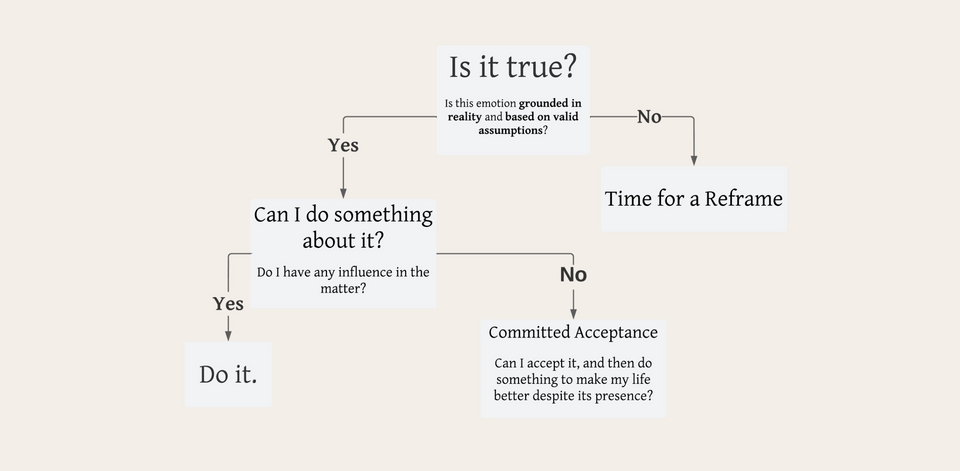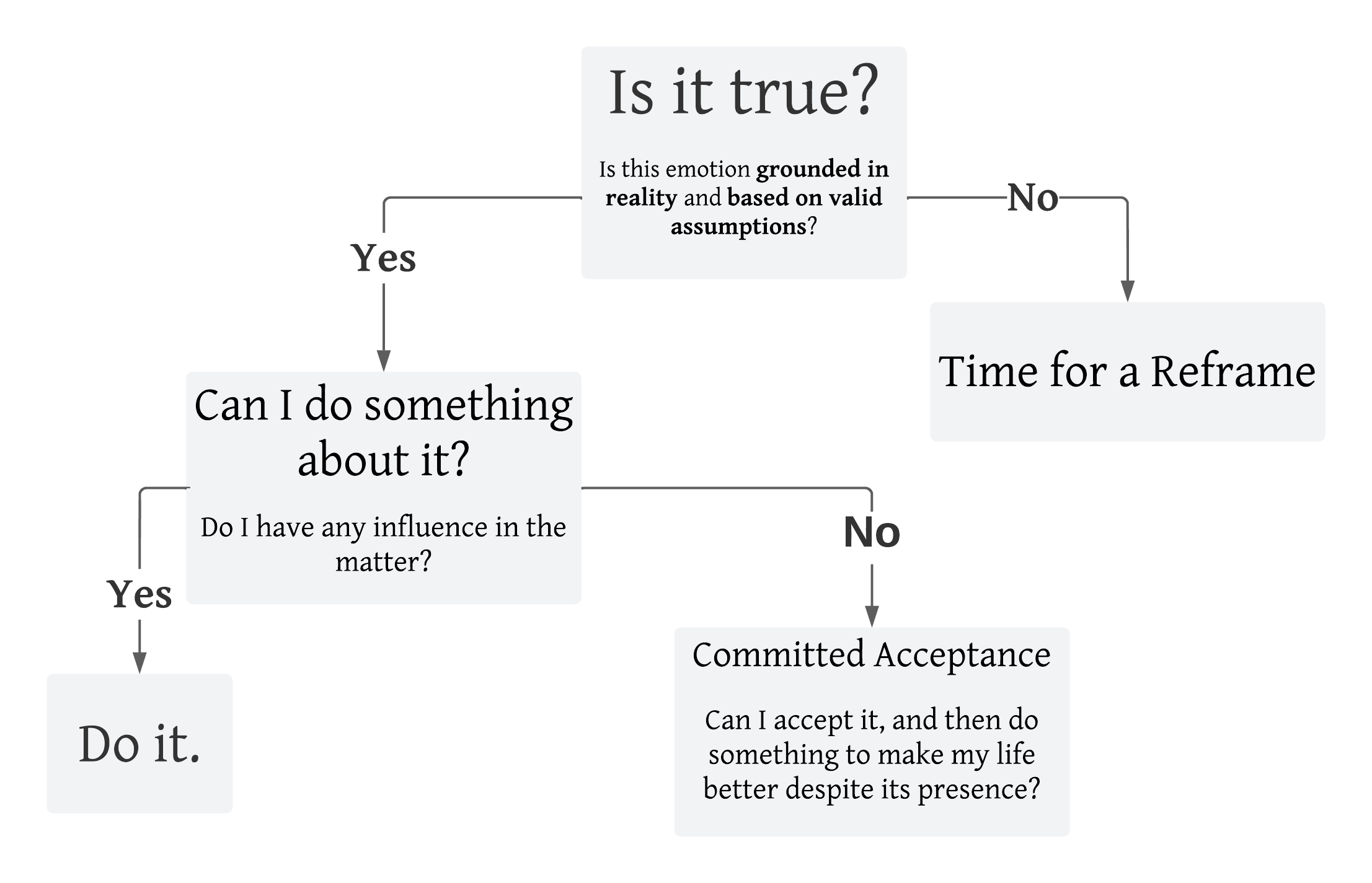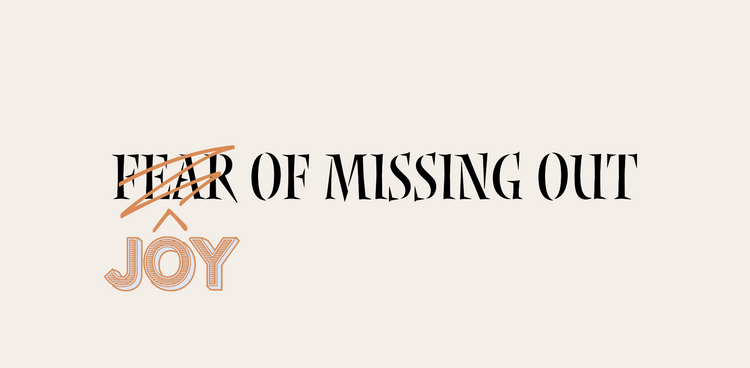Crash Course in Emotion Regulation

Say that you’re sitting in a job interview (Situation) and you notice that the interviewer just yawned (Attention). Your mind quickly concludes that this means he finds you boring (subjective Appraisal) and you start to sweat and feel anxious (Emotional Reaction).
But you probably don’t want to be sweaty and anxious in a job interview. So how can you impact this process?
The answer builds on Self-Efficacy. It’s the confidence that you can influence your state. And it makes intuitive sense, doesn’t it? If you believe that you are controlled by your emotions, its hard to control them. But if you believe you’re in control, you’re measurably better at it¹.
This week explores the 5 Ways to Control your Emotions research has found, so you can build your Self-Efficacy, and ends on a simple framework to decide which one to choose.
Let’s take the example of the job interview to run through the 5 Ways.

Situation Selection - Just avoid the situation
If you’re not there, you can’t react. Slight Problem: Avoidance is wonderful at relieving stress in the short term, but often at the cost of long-term stress. Not showing up to the interview is highly effective in avoiding the sweaty anxiety, but makes getting the job a tiny bit harder.
Situation Modification - Treating the Cause
You could just ask for a 2-minute break. Calm down and rock on. If there’s something to do about it, solving the problem changes the reaction. But let’s say they have a strict no-break policy for some reason. What now?
Intentional Attention - Make the Shift or Ruminate?
On a neurological level, an emotional response can’t last longer than 90 seconds². After that, we have to bring the root cause back to start over again. But we just put our attention on the memory of yawn and keep the anxiety train rolling.
But you can control your attention. If you catch yourself, you can shift your attention to all the smiling nods he gave you before, or even just think about little puppies. Et voilà, 90 seconds later, the feeling is different. And if you don’t want to wait 90 seconds?
Reframing - Is there another way to think about it?
Maybe the interviewer just became a dad, and he’s up all night because his kid is a cry machine? Maybe this is his 15th interview of the day, and he’s absolutely knackered?
A reaction comes from out subjective evaluation of what attention brought us. But our evaluation is simply one of many possible, and the truth is: we rarely know if it’s the correct one. So if it’s a guessing game anyways, the question becomes - is it the most helpful one? Maybe it’s just time to reframe.
But let’s assume the worst. He yawned because you’re boring. Well, alright - now what? Can you accept that? Take a deep breath, begin again, and absolutely nail the rest of the interview? Acceptance can become a superpower in situations that cannot be changed. And at that moment, the past is absolutely unchangeable. But the rest of the interview still is.
And if all of the above don’t work, there’s still one last resort.
Changing the Response - Treating the Symptom
If you can’t (or can’t be bothered to) treat the cause, there are ways to simply force another reaction. However, most of these are pretty unhealthy. Suppressing the emotion can work well in the short term - it might be helpful to postpone the ugly crying until after the interview - but isn’t particularly sustainable (big surprise). Substance abuse is another, but you really don’t wanna be taking pills before each interview.
But there are exceptions. For example, taking a couple deep breaths directly attacks the bodily response of anxiety, and might give you the clear head you need to shift your attention or reframe.
Sure, external events set in motion the process of emotion, but whatever the reaction is - it’s always generated internally. Nothing can “make you” feel a certain way. Between the event and the emotional reaction, there is always the step of subjective appraisal. And stepping back for a moment, you have a say in how you want to react. And the best way to react depends on the situation! Acceptance is great if you can’t change the situation. But if you can change it - it might be better to do that.
So here’s my framework for this step back:

Links
1 Benfer, N, Bardeen, JR, & Clauss, K 2018, ‘Experimental manipulation of emotion regulation self-efficacy: Effects on emotion regulation ability, perceived effort in the service of regulation, and affective reactivity’, Journal of Contextual Behavioral Science, Vol. 10, pp. 108–114, DOI:10.1016/j.jcbs.2018.09.006.
Model from Gross, JJ 2015, ‘Emotion Regulation: Current Status and Future Prospects’, Psychological Inquiry, Vol. 26, pp. 1–26, DOI:10.1080/1047840X.2014.940781.




Comments ()